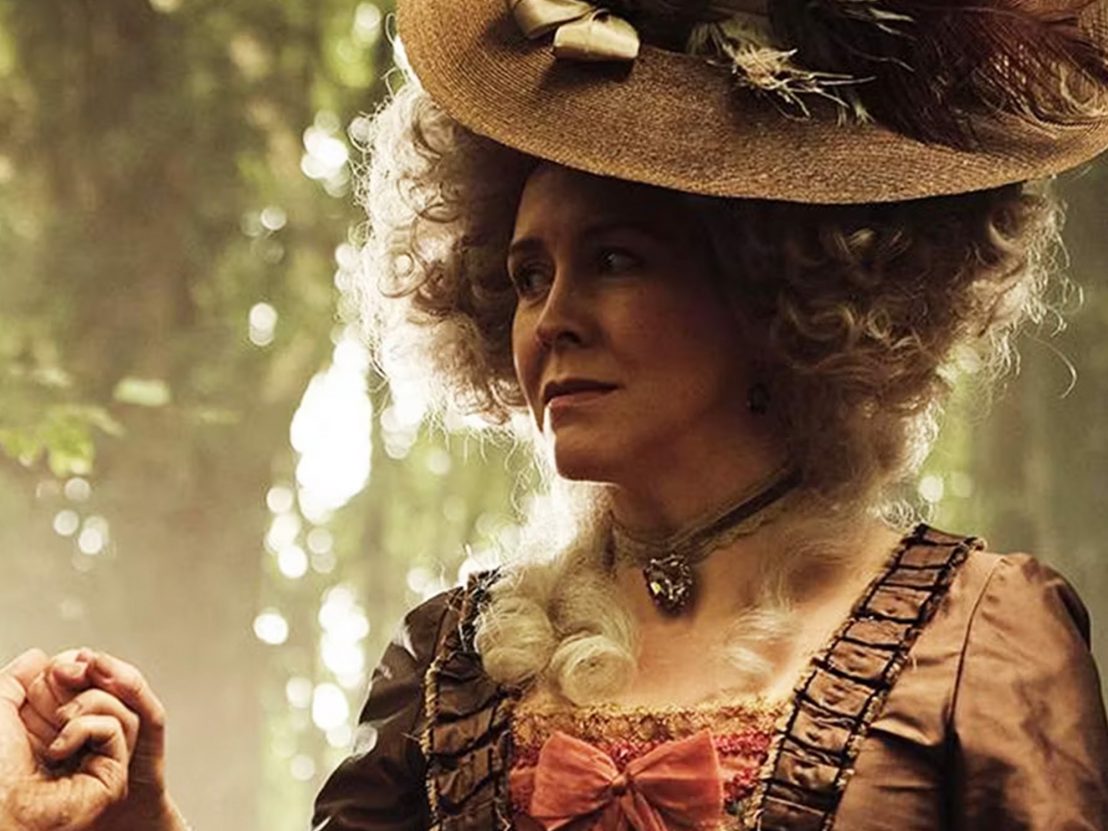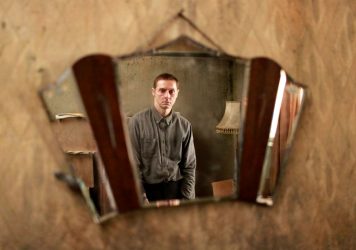
Alice Lowe’s miraculous second feature is a triumph of imagination, soul-searching and a refined comic instinct.
It’s hard to watch a film like Timestalker and not think that someone, somewhere, preferably a culturally enlightened fop or dowager, should throw wadded bundles of banknotes at writer/director plus actor, Alice Lowe, so she can make whatever the hell she wants. Her 2016 film, Prevenge, about an expectant mother whose unborn child exerts a malevolent force over her, is a rich and deep film about the unspoken psychological torments that come with pregnancy.
With Timestalker, she doubles down on the scope, ambition and insight of that debut to deliver a melancholy romantic fable which spans multiple centuries and can aptly be described as Alain Resnais does Blackadder. The expansive nature of her cinematic dreams feel as if they would be perfectly served by more budget and resource, but that’s not to say that the film she’s made doesn’t deliver on its own industrious and creative merits.
Lowe plays Agnes, introduced as a sadsack spinster during the Middle Ages, locked in a faraway stupor while sitting at a spinning wheel. As a little dog runs off with her ball of yarn, she pricks her finger which catalyses a fairy tale odyssey of violently unrequited love. She becomes instantly besotted with a dashing rebel priest (Aneurin Barnard) who is captured and primed for comically gruesome public torture. Yet Agnes is sadly unable to fulfil what she construes as her destiny, and her attempts to forge a connection with this mystery man backfire in the most spectacular way imaginable.
This is a film where the less you know, the more fun you’ll have tumbling down the multi-tiered rabbit hole that Lowe has painstakingly constructed. But let’s just say the film definitely takes us to some wild places (and times), as we see intriguing and eccentric variations of this initial sketch play out, some of which are more lavish with the detail and the size of the cast, and others which are tragically curt (tragic for the character rather than the viewer, that is).
On hand is Nick Frost whose character is violent and flawed, but not without his empathetic pressure points. Jacob Anderson, too, is brilliant as the grinning Cheshire Cat to Agnes’s Alice, offering cryptic assistance along the road that is roundly ignored by our smitten damsel. Formally, Lowe and her team do a lot with a little, generating atmosphere through clever, expressive production design, New Romantic vibes and some soft-focus dreamy bits of business with floaty chiffon that would make even Stevie Nicks demure.
The title of the film, Timestalker, may seem like a bit of a red herring in that it makes it sound like a time-travelling action-thriller from the 1980s, but, by its closing passages, it becomes clear that it is in fact the perfect encapsulation of Lowe’s complex and purposefully inconclusive intentions.
It’s a very funny film, and Lowe is someone who can elicit a laugh from the deadpan line reading of a single word, yet the impression that it leaves is quite different: a confessional and bittersweet howl into the void; an expression of confusion and disappointment; a film which refuses to explain its heroine’s literal generational trauma with simplistic self-help platitudes. It’s desperately moving in the most satisfyingly insidious way, eventually recalling no less than Sally Potter’s ethereal, time-hopping Orlando. But to restate: it’s also very funny.
Little White Lies is committed to championing great movies and the talented people who make them.
Published 9 Mar 2024

Alice Lowe explores the horrors of maternity in this blackly comic riff on Rosemary’s Baby.

The Prevenge director on how she owned her womanhood by flipping a perceived weakness into a strength.

A wandering loner is haunted by a grotesque puppet in this ambient suburban chiller from one-time comic Matt Holness.